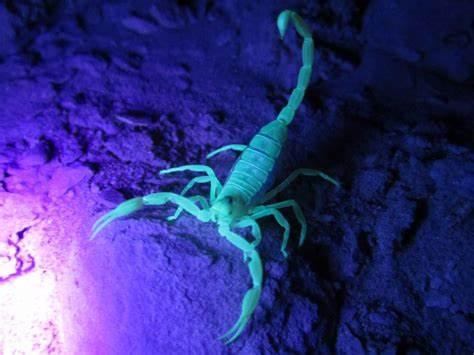Scorpions, while fascinating creatures with a rich evolutionary history dating back millions of years, can be unwelcome guests in your home. Their presence can cause anxiety, and their sting, although rarely fatal in the United States, can be painful. If you suspect scorpions have taken up residence in your home, don’t panic. Here’s a comprehensive guide to effective scorpion control, helping you eliminate these unwanted visitors and create a safer environment for yourself and your family.
Scorpions are nocturnal arachnids, meaning they are most active at night. They are solitary creatures and prefer dark, humid environments. This means they’ll likely spend their days hiding in quiet, undisturbed areas of your home. Common hiding spots for scorpions include cracks and crevices around foundations, walls, window frames, and door frames. They may also take shelter underneath appliances, in basements, bathrooms, laundry rooms, and crawl spaces, particularly if these areas are damp.
The good news is that scorpions are not interested in taking up permanent residence in your home. They are not scavengers and won’t raid your pantry for food. Instead, they are solitary predators that enter your home in search of water, shelter, or to find smaller insects and spiders to prey on. By understanding these basic scorpion behaviors and preferences, you can take targeted steps to make your home less inviting to these unwelcome guests.
Understanding Scorpions and Their Habits
There are various scorpion species in the United States, and the Southwest, including Las Vegas, is home to the prevalent bark scorpions. These creatures of the night thrive in dim, moist habitats and take refuge during daylight hours. Scorpions often seek refuge in various hiding spots, such as:
- Cracks and crevices: Scorpions are adept at squeezing into tight spaces. Check areas around foundations, walls, window frames, door frames, and underneath appliances.
- Underneath clutter: Leaf litter, piles of wood, and other debris in or around your home provide ideal hiding spots for scorpions.
- Moist areas: Basements, bathrooms, laundry rooms, and crawl spaces with higher humidity attract scorpions.
Strategies to Rid Your Home of Scorpions
A two-pronged approach is most effective in eliminating scorpions: creating a scorpion-unfriendly environment and implementing targeted measures to eliminate existing populations.
- Prevention Measures:
- Seal Entry Points: Use a caulk gun to seal cracks and crevices around your foundation, windows, doors, and utility lines. This reduces potential entry points for scorpions seeking shelter.
- Minimize Clutter: Eliminate clutter inside and outside your home, especially around the foundation. Remove leaf litter, piles of wood, and other debris that can provide scorpions with hiding places.
- Manage Moisture: Address any moisture issues in your home, such as leaky pipes or clogged drains. Scorpions thrive in humid environments.
- Screen Doors and Windows: Install tight-fitting screens on windows and doors to prevent scorpions from entering your home.
- Active Scorpion Elimination:
- Professional Pest Control Service: For a serious scorpion infestation, consider hiring a reputable pest control service. They have access to specialized scorpion control products and techniques to effectively eliminate existing populations.
- DIY Scorpion Control Methods: Several DIY methods can help manage a mild scorpion infestation. However, these methods may not be as effective as professional services. Here are some options:
- Black Lights: Scorpions fluoresce under ultraviolet (UV) light. Use black lights to locate scorpions hiding in dark areas and then remove them with long tongs.
- Glue Boards: Place glue boards in strategic locations, such as corners and along walls, to trap scorpions.
- Diatomaceous Earth (DE): Apply DE, a natural powder made from fossilized algae, around the perimeter of your home and in potential scorpion hiding spots. DE dehydrates scorpions and can be effective in controlling small populations.
Important Safety Precautions
- Always wear long sleeves and gloves when handling scorpions or applying pesticides.
- Exercise caution when using pesticides. Follow all label instructions carefully and keep these products out of reach of children and pets.
- Seek immediate medical attention if you experience a scorpion sting, especially for young children or individuals with allergies.
Preventing Future Scorpion Problems
By taking proactive measures and maintaining a scorpion-unfriendly environment, you can significantly reduce the risk of future infestations. Here are some additional tips:
- Regularly inspect your home for signs of scorpions, such as live scorpions, molted casings, or scorpion droppings.
- Vacuum frequently to remove potential food sources for scorpions, such as insects and spiders.
- Maintain a clean and tidy yard. Keep your lawn trimmed and free of debris to discourage scorpions and their prey from establishing themselves near your home.
Scorpion control requires a multi-faceted approach
Combining preventative measures with targeted elimination strategies can effectively protect your home from these unwelcome visitors. Remember, if you’re dealing with a significant scorpion infestation, professional pest control services are often the most effective solution. By taking these steps, you can create a safe and scorpion-free environment for yourself and your family.

